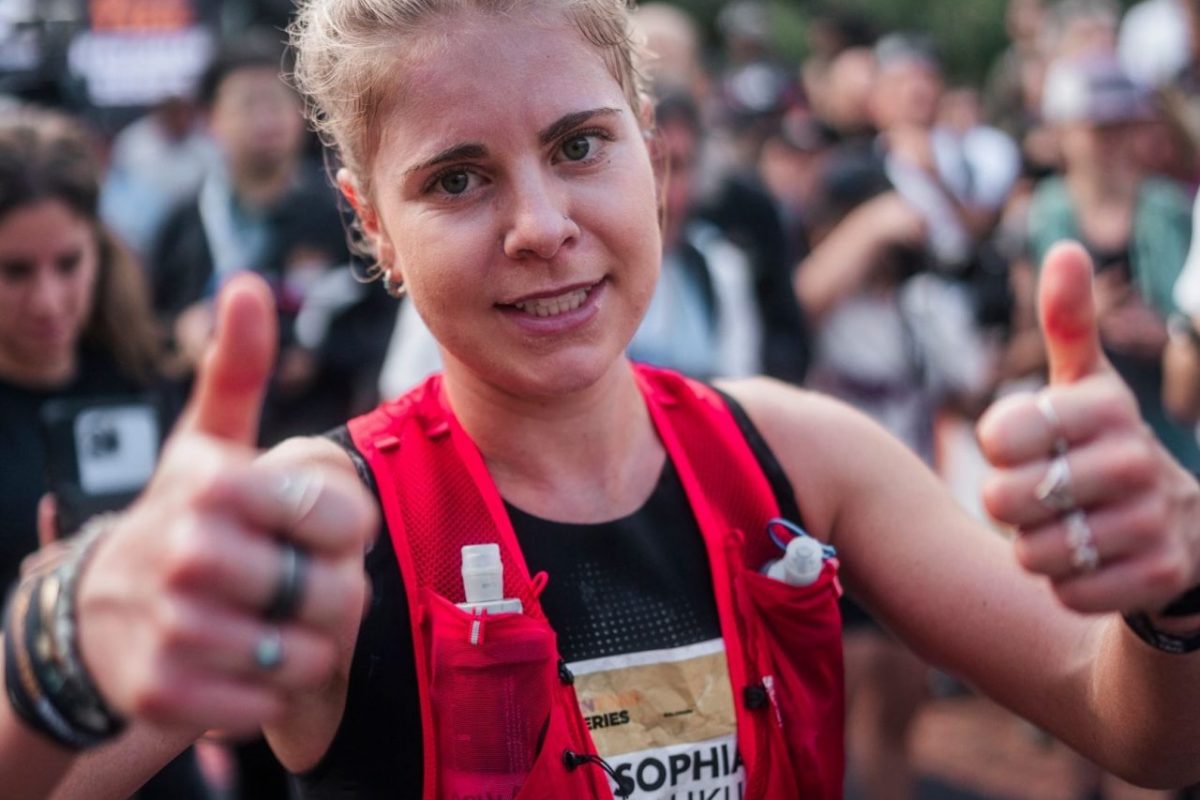This week, FasterSkier caught up with U.S. cross-country team member Julia Kern. It turns out catching up with Julia isn’t just hard on the racecourse, but it’s pretty darn challenging in life. No one would begrudge any team member a much needed travel respite after a draining World Cup season. But Julia appears to thrive on movement—she seems to be a living example of Newton’s First Law of Motion— a body in motion will remain in motion.
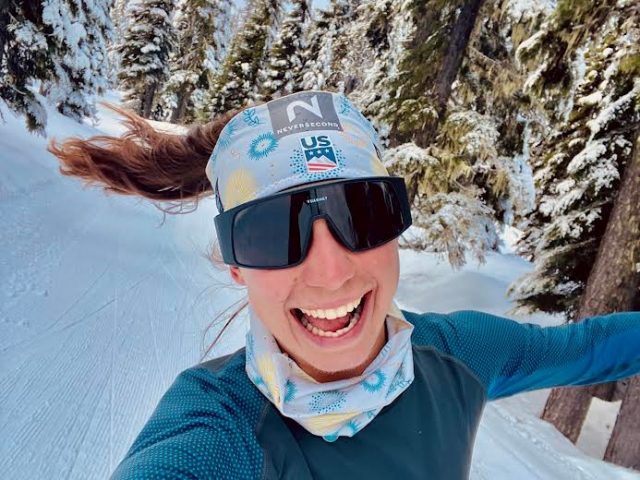
After concluding a successful ski season, Julia enjoyed a brief stint home before traveling to Croatia to attend her first FIS (International Ski Federation) meeting as an athlete representative, and also managed to fit in some touring. Then, after the spring camp, she went to San Diego to spend time with family.
FasterSkier was very fortunate to catch up with Julia, and she was generous enough to have a phone conversation about being an athlete delegate, spring ski training, and a bunch of other stuff.
This interview has been edited for brevity and clarity.
FasterSkier: What did you do after the World Cup season ended?
Julia Kern: Ironically travelling more! I spent two days at home to repack for the next seven weeks, came out to San Diego for 2 1/2 weeks, went back over to Europe and went to Israel, Germany, Rome and Croatia for the FIS meeting, then I flew straight to Bend.
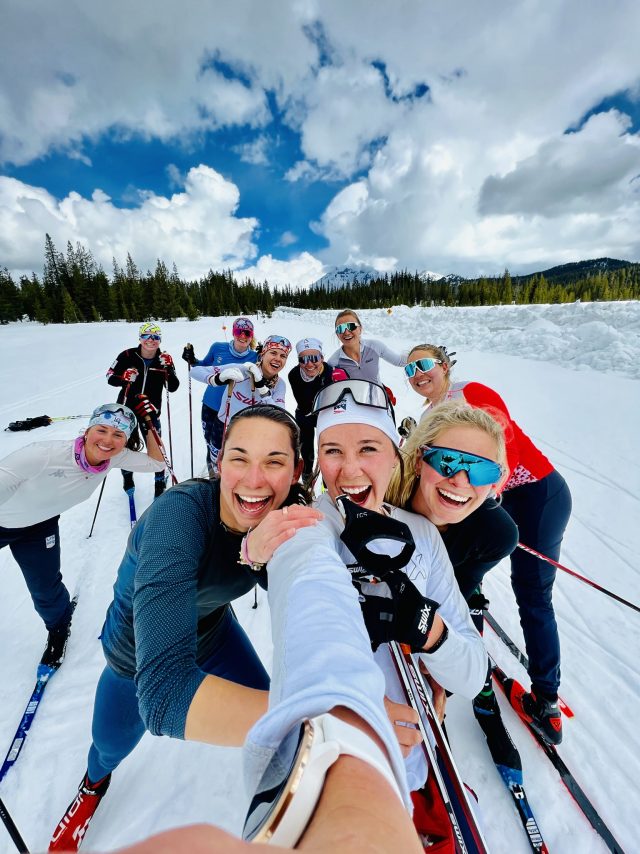
FasterSkier: Because you didn’t get enough travelling during the winter?
Kern: (Laughing) I had the FIS meeting in Croatia, since I’m a new athlete representative, I’m going over to Europe anyway, so I might as well combine a few things.
FasterSkier: As an athlete representative, what’s your role?
Kern: Each sport has a male and female representative. James Clugnet (GBR) is the male representative. Our role is to speak on behalf of the athletes. We send out an athlete survey at the end of the season to gather the general consensus from the athletes and present that data in the meetings. The athletes have one combined vote on the committee. It was really cool that athletes’ voices were really heard and sought out. It was an incredible experience. Our role was to represent the athletes’ voices and to learn all the pieces of FIS and who’s behind each role. That’s why it’s a four year term so you have time to learn.
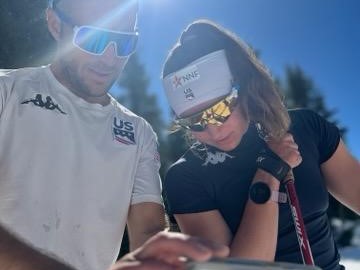
FasterSkier: What were a couple of the top concerns of athletes?
Kern: The top topics we were trying to get feedback on are what are the race distances moving forward for World Championships and the Olympics. Other topics were dealing with scheduling. How many races should there be and how should they be formatted?
FasterSkier: When you talk about scheduling do you get really granular going week by week?
Kern: It’s a 35,000 foot view down to a granular view. There’s a subcommittee that works on the calendar. At the meetings options are presented and the reasons why [things are scheduled as they are]. We surveyed the athletes about why they didn’t participate and what the issues are: travel, sickness, funding. At the meetings it does get granular. For instance, everyone agrees that Holmenkollen shouldn’t be six days after the last 50k at World Championships. But there are so many factors which people don’t realize. Biathlon has their Holmenkollen dates booked three years out, and it’s a Nordic weekend, so you have ski jumping and Nordic combined…once you start listening to these conversations you see there are restrictions on the calendar. It was eye opening to see. When the schedule doesn’t seem to make sense, there’s always a good reason behind it and it’s not always in their control or their choice. FIS congress [still] has to vote to put their stamp on everything.
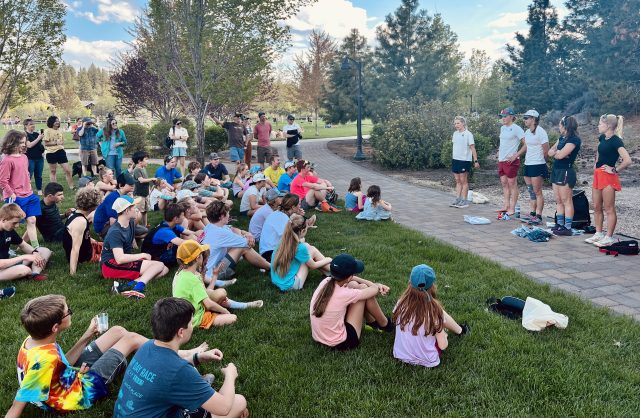
FasterSkier: When the scheduling was discussed was there any conversation about increasing the number of skiathlons or pursuit races?
Kern: Yes and no. With skiathlons, as athletes, we pushed that championship events are held at least once before in that season so when you’re picking a team you have something to go off of. I think we’re going to see a lot more pursuits moving forward at least with the 20ks. They’re looking at ways to mix it up. During the Tour de Ski you’ll see a few pursuits as well.
FasterSkier: Do things such as viewership and attracting audiences get discussed?
Kern: Oh definitely. Everyone wants the sport to grow. Some of it is dictated by T.V. slot time; how long does this event take and how much time is given. I will say another thing I observed, that as a whole, I would say our calendar, cross country, makes the most sense. They’re trying to be as efficient and logical with the schedule as possible. Seeing what the other sports do, it is quite impressive what cross-country has been able to put together.
FasterSkier: Was there concern expressed over the new protocols for fluoro testing?
Kern: The protocol was presented and explained. It will be an adjustment for everyone. The fluoro ban is happening and everyone needs to adjust. There might be some details which need to be figured out. Everyone needs to approach it as the new reality, and we just need to adjust. We’ll have a separate meeting with the athletes in June educating them on the process.
FasterSkier: So after all of that you went to Mt. Bachelor for spring camp. How were snow conditions?
Kern: Awesome! The west obviously had a really good winter, there was lots of snow. We ended up with warm temperatures the second half of camp, so it was really good practice to ski in some slushy conditions. It was a really productive and fun camp for the team.
FasterSkier: What’s the training philosophy for spring camp? What is it that you’re focusing on and trying to accomplish?
Kern: I think it’s different for each athlete. For me, it was such a long season; I don’t do much before Bend camp, so I treat it as a great way to kick off the training year. It’s still pretty relaxed and fun, having a good time, working on ski technique, and in the afternoon going out for a bike ride. We have all of our U.S. team resources there which is incredibly helpful. We meet with our P.T. and do strength testing and work with our strength coach to build out the plan for the year; review last year. We work with our sport psychologist; they did a workshop on goal setting, and we set our goals for the year. We had nutrition and dietician meetings, making sure everyone’s wellness is addressed. It’s a great way to introduce the new athletes to the team and see what all the resources are and connect with them. We always kick off the day with a morning ski and every ski session we had a technique meeting time, so big focus on having good technique habits as we start the new training year.
FasterSkier: You’re coming off a really successful season, especially in sprints, was that something you focused on this spring?
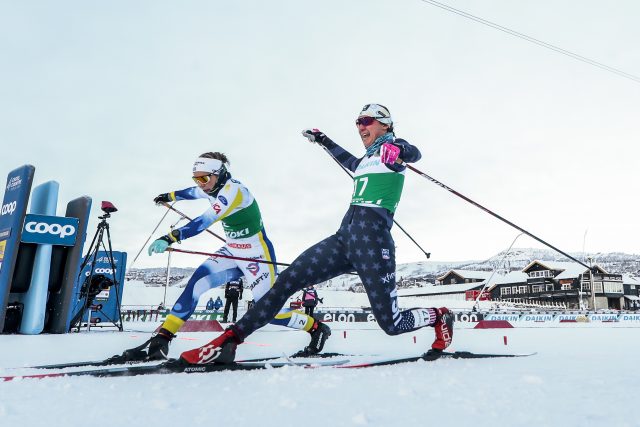
Kern: I’ve always had goals of improving in both sprint and distance for the next year. This year we practiced [finishing] lunges because that’s a thing you can’t practice on roller skis. So in these speed sessions we focus on what we can’t do on roller skis, so we focus on herringbone, classic running on skis, lunging, and playing with ideas of how I get around people, and being more aggressive. More repetitions going head to head with people on snow is really helpful for sprinting.
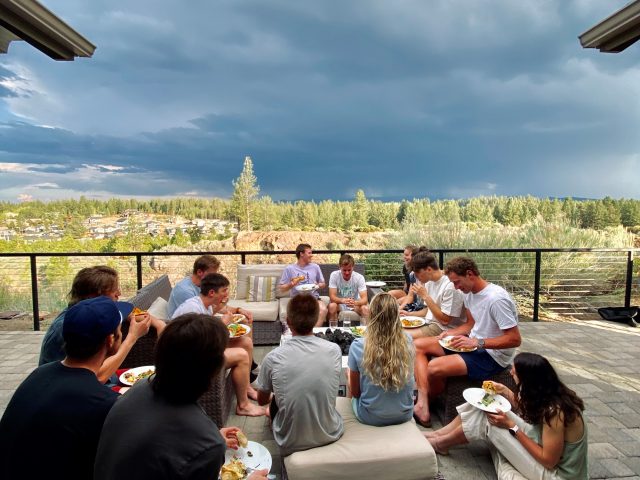
FasterSkier: After camp did you come away with anything which you needed to change in training?
Kern: There are always things I want to change to work and improve on. There are specific workouts closer to the season that I want to try that I haven’t done in the past, to be ready at the first World Cup this year. I’m heading to New Zealand this summer for some on snow time, and there I’ll have some specific goals to practice things on snow that can’t be done dryland training.
FasterSkier: Were you able to take advantage of any of the off snow activities which Bend offers?
Kern: Oh yeah. I brought my mountain bike, so I did quite a few mountain bike rides in the afternoon which was a lot of fun. We had trails right out the door so we were biking on the trails in Bend. It’s a great way to kick off the training year. You have summer weather and winter skiing.
FasterSkier: Was it too early to start focusing on Minneapolis World Cup races?
Kern: Definitely not too early; we’ve been thinking about that for years! That’s definitely the highlight of the calendar this year, especially given there’s no World Championship or Olympics. Everyone is really excited for it. We’ll be able to start more athletes than normal, getting the nation quota slots [FIS rule which allows host countries to field more skiers].
FasterSkier: Have you skied at Wirth Park [Minneapolis host site] before?
Kern: I have never skied at Wirth Park.
FasterSkier: Will you be able to ski it before the races?
Kern: I’m not sure. Our schedule is a little unknown because we’ve never crossed the bridge of do we have time to go home, do we go home, how does this work, so I don’t know yet.

FasterSkier: How about the team events for the upcoming season. Is it too early to focus on team relays?
Kern: The team relays are a goal we’ve been chasing for a really long time and believe it’s possible [to reach our goal], it’s just putting all of the pieces together. It’s something that motivates me during training. I was doing intervals and the stronger person leads in one section and you draft in the sections where you’re not as strong. I think those sessions help everyone get better collectively. If we continue to approach training that way, of not competing against one another, but supporting and pushing each other, that is working toward that relay goal that we’re all dreaming of and really want to achieve.
FasterSkier: Earlier you referred to yourself as a veteran. Do you see yourself having a mentoring role at this point?
Kern: I don’t know [laughing] you might have to ask them [younger athletes]! I’m somewhere in between, where Jessie and Rosie are definitely veterans, and then after that I’m the next oldest which is kind of surprising. I see it more that everyone is a resource for each other, and everyone has experience and different knowledge to bring to the table. I see it as a team environment where everyone is contributing.
FasterSkier: Do you think it’s intimidating for some of the younger new team members?
Kern: I hope they don’t feel that way. I think we’ve been really trying to be inclusive, but when you are younger there may be some star struck feeling at the beginning. But young athletes like Sammy [Smith]; we spent the whole last World Cup period with her, so I think with more time they become comfortable, and realize we’re all just trying to work together. I was really impressed with the new athletes about how open they were in sharing their thoughts and speaking up in team meetings and contributing. There wasn’t a feeling of separation of the older and younger athletes or A, B, or D teams.
FasterSkier: The team has put together a chemistry which other countries try to emulate. Is there something specific which goes on to develop that, or is it just the sense of openness?
Kern: It’s hard work. It’s definitely not something which just happens naturally. We have regular team culture meetings where we write out what our team wants to be known for and how we want to treat people. We check into that regularly to see if we’re achieving those goals, or what we’re missing. Everyone wants others to be comfortable speaking up, and supporting each other, not just as athletes but as humans. It’s years of hard work and not letting up. We continually work on it.

FasterSkier: Where are you heading to next?
Kern: I’m off to Stratton [Vermont]. I’ll be settling there for the summer and fall months training with the SMS T2 team.
FasterSkier: So is Stratton home these days?
Kern: I grew up in Boston, and my family also has a place in Vermont, so Vermont feels like home, I’d say the Boston-Vermont area is home (chuckling), but I kind of feel like San Diego is home now too. It’s where the people in my life that matter are and where I am.
FasterSkier: Thank you so much for taking this time, it’s been great speaking with you.
Kern: Thanks for sharing with the readers. Our community is our support, so it’s good for them to be in the loop.
FasterSkier extends it appreciation to Julia Kern and the Stifel U.S. Cross Country Ski Team for facilitating this interview.

